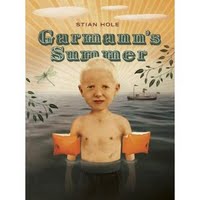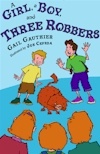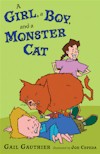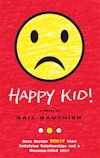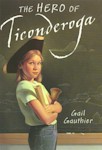We do
love plot. A cliche regarding plot goes that genre fiction is plot driven while so-called literary or mainstream fiction (which some people now contend is a genre, itself) is character driven. In the Gauthier world view, all the traditional elements of fiction (plot, character, point of view, setting, and theme) should be balanced. Integrated even.
Easier said than done, of course. But what isn't?
An important point to remember about plot: There should be a cause and effect relationship between each plot point. A causes B to happen and B causes C, etc. so that once the climactic moment arrives, readers feel that, of course! What else could have happened! If there is no causal relationship between events, you don't have a plot. You have a list of random things happening.
Plot thoughts about this week's study subjects:
Toward the middle of
The Dead Father's Club I felt things had slowed down a bit. I'm not talking obvious gaps or leaps in logic. I just felt, Kill him or don't, kid. But by the end of the book, I was sneaking time from work to keep reading.
I think this was a case of the plot, as well as character, supporting one of the book's
themes--determining a correct course of action. A character contemplating murder
should linger over the decision.
You have to read fifty pages of
The Beekeeper's Apprentice before Sherlock Holmes and his young partner, Mary Russell, take on their first case. That seems like a long time for a "plot" to get going in a traditional mystery. And right in the midst of the book's most serious case, the main characters take a detour to Palestine. What? They're going to Palestine
now? I thought. Or at all, for that matter, since it seemed totally unrelated to what was going on in that plot.
But
The Beekeeper's Apprentice has a great deal to do with character. Those first fifty pages are all about creating Holmes and Russell. As for the trip to Palestine, that's all about defining Russell both as a young Jewish woman and as a woman who is committed to memory. While leaving Jerusalem she recites part of Psalm 137, including the lines, "If I forget you, Jerusalem, may my right hand wither, May my tongue cleave to the roof of my mouth, if I do not remember you." This book is supposed to be an account by an elderly woman who does, indeed, remember not only Jerusalem but the companion/father/partner of her youth.
Some of my
commenters have suggested that they associate strong plot with kids' fiction. That could very well be why adult mysteries often serve as gateway books for teenagers moving on to adult books. Plot is important to mystery. Neither
The Dead Father's Club nor
The Beekeeper's Apprentice are slaves to plot. But plot is woven in with other fictional elements, particularly theme and point of view, which should help young readers dipping their toes into adult works appreciate their balance.
Labels: Gail goes on and on, plots, Reader response, YA
